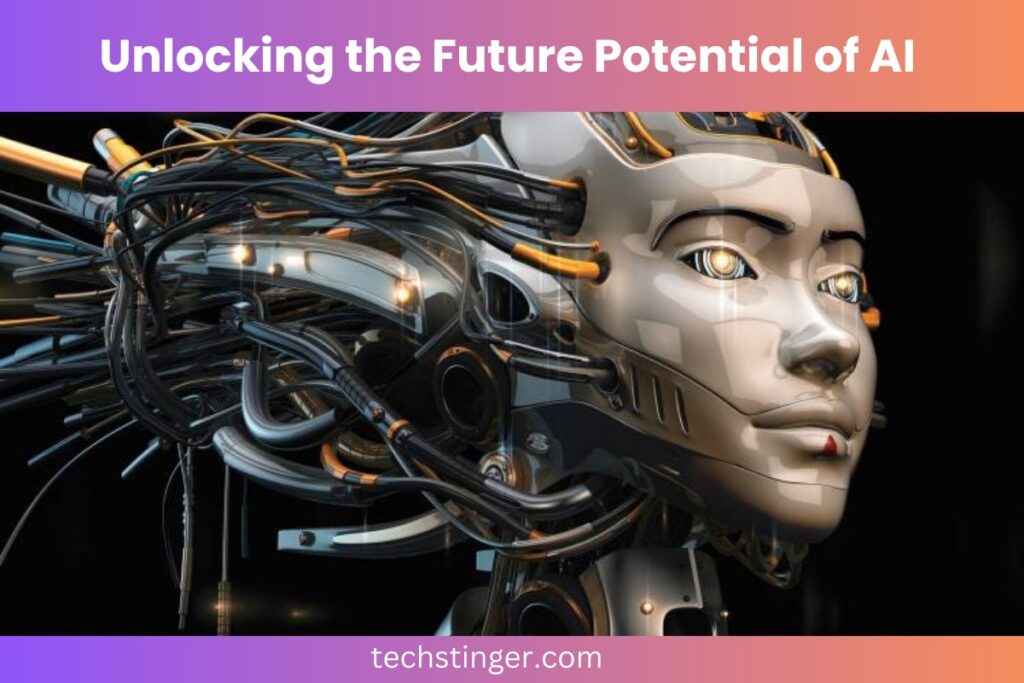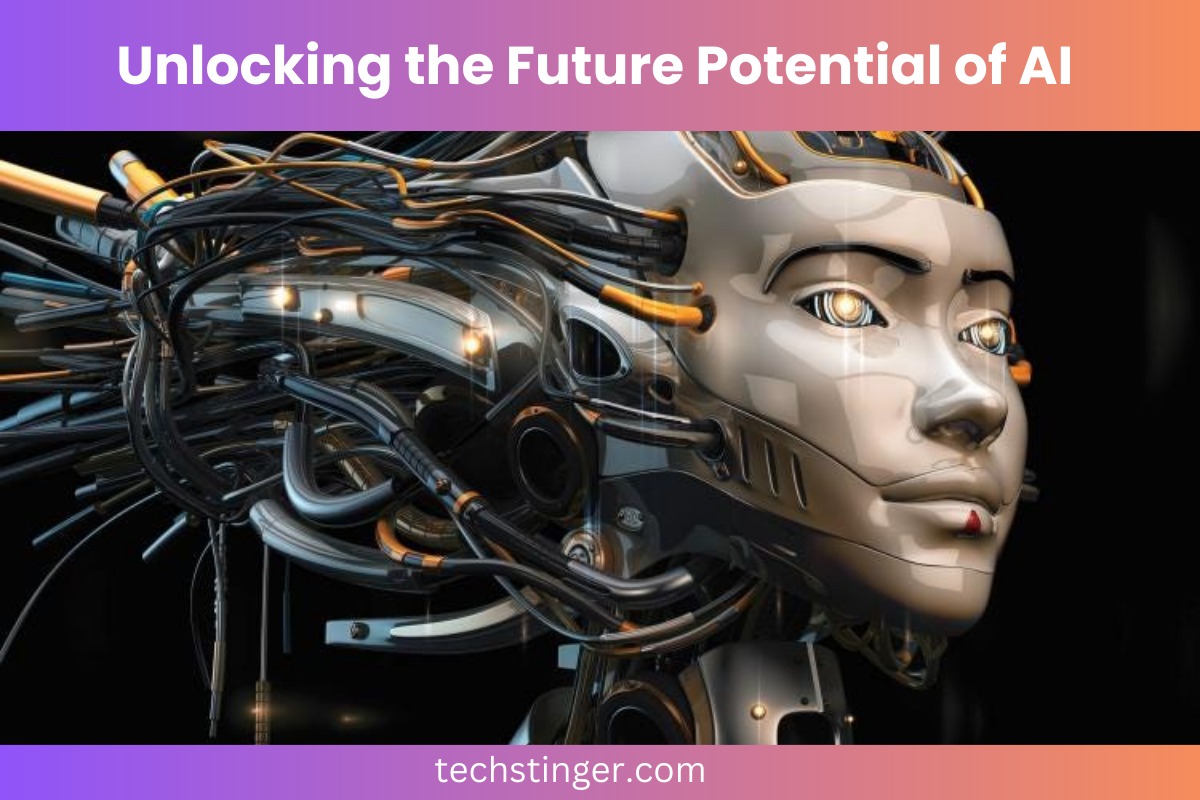Unlocking the Future Potential of AI: How Artificial Intelligence Will Revolutionize Every Industry

In a variety of industries, artificial intelligence (AI) has become one of the most revolutionary and disruptive technologies. It has the ability to completely change the way we work and live. In industries including healthcare, banking, transportation, and entertainment, AI has already made substantial progress. We haven’t even begun to scratch the surface of what AI is capable of. In this essay, we’ll examine AI’s potential for the future and how it stands to significantly alter the course of human history.
Artificial intelligence (AI) has emerged as one of the most ground-breaking technologies of our time in the quickly developing digital world. AI has already made great progress in a variety of areas thanks to its capacity to mimic human intelligence and carry out activities that previously required human involvement.
The Current State of AI
AI has already been smoothly incorporated into our life in ways that we may not always be aware of. AI is everywhere, from the tailored recommendations we get on streaming services to the voice-activated virtual assistants that guide us through daily tasks. Beyond consumer applications, AI is propelling innovations in a number of sectors, including healthcare, finance, manufacturing, and transportation.
For instance, AI-driven algorithms in the healthcare industry examine medical data to find patterns and generate more precise diagnoses. AI drives fraud detection systems in banking, enhancing risk analysis and fraud prevention. AI is utilised in manufacturing for predictive maintenance, which lowers downtime and boosts productivity.
The Promising Applications of AI
a) AI in Healthcare
The potential of AI in healthcare is enormous. As AI-powered medical imaging systems develop, they may help in the early disease detection that leads to better treatment outcomes. In order to personalise treatment regimens and guarantee that patients receive specialised care, AI systems may also analyse enormous volumes of patient data.
b) AI in Education
Another industry that will greatly profit from AI developments is education. Intelligent tutoring programmes may adjust to the unique learning preferences of each student, offering individualised instruction and feedback. AI can also automate administrative work, freeing up time for educators to concentrate on student engagement and personalised instruction.
c) AI in Environmental Conservation
AI has a critical role to play in protecting our environment. We can more effectively monitor and manage natural resources if we use AI-powered sensors and analytics. Using AI, environmental dangers can be predicted and reduced, promoting sustainability and conservation initiatives.
d) AI in Transportation
AI-driven transit solutions are the way of the future. Autonomous and self-driving vehicles are on the horizon, offering less congested roads and safer driving conditions. Routes and traffic flow are optimised using AI algorithms, improving transportation efficiency and environmental sustainability.
e) AI in Customer Service
Customer service is being redefined by chatbots and virtual assistants powered by AI. They improve client experiences and shorten response times by providing round-the-clock help, responding to inquiries, and resolving problems immediately.
The Ethical Implications of AI
It is crucial to think about AI’s ethical ramifications while we embrace its potential benefits. Critical issues include data privacy, security, and openness. Data ownership, utilisation, and the potential for biases in algorithmic decision-making are all issues that are brought up by the fact that AI algorithms significantly rely on data. To establish confidence and allay these worries, responsible AI development and deployment are crucial.
The Roadblocks to AI’s Full Potential
Despite the impressive advancements, AI still has obstacles to overcome before realising its full potential.
a) Data Privacy and Security
Since access to such a large amount of data is necessary for AI to function effectively, privacy and security issues are raised. It’s critical to strike a balance between using data for AI developments and protecting user privacy.
b) Skill Gap and Employment Disruption
Rapid AI adoption could result in employment losses in several sectors. It is crucial to upskill and reskill the workforce through initiatives in order to fully realise the potential of AI.
c) Regulation and Standards
A complete set of rules and standards are clearly required as AI becomes more commonplace. Setting up explicit rules will guarantee moral AI development and responsible application.
The Future Vision of AI
Looking ahead, the potential for AI is enormous:
a) General Artificial Intelligence (AGI)
The ultimate goal of AI research is to develop AGI, in which machines have cognitive skills similar to those of humans. AGI would transform business, science, and the basic foundation of human existence.
b) Human-Machine Collaboration
The potential of artificial intelligence is not in replacing people, but in enhancing and extending human capabilities. AI system collaboration can result in previously unheard-of levels of productivity and innovation.
c) AI for Social Good
The potential for AI to benefit society is enormous. We can address global issues, encourage inclusivity, and enhance everyone’s quality of life by using AI for social good.
Conclusion
A future with limitless possibilities can be unlocked with artificial intelligence. AI’s influence on our lives will soon be felt in fields including healthcare, education, and transportation, as well as in environmental protection. In order to build a future where AI serves humanity’s best interests, it is crucial that we address ethical concerns, make investments in education and skill development, and work together.

